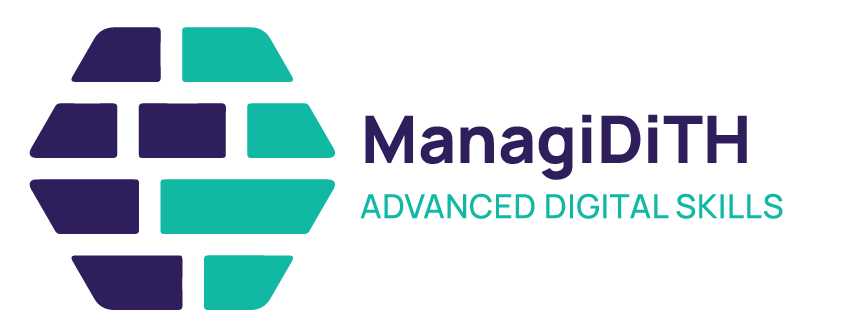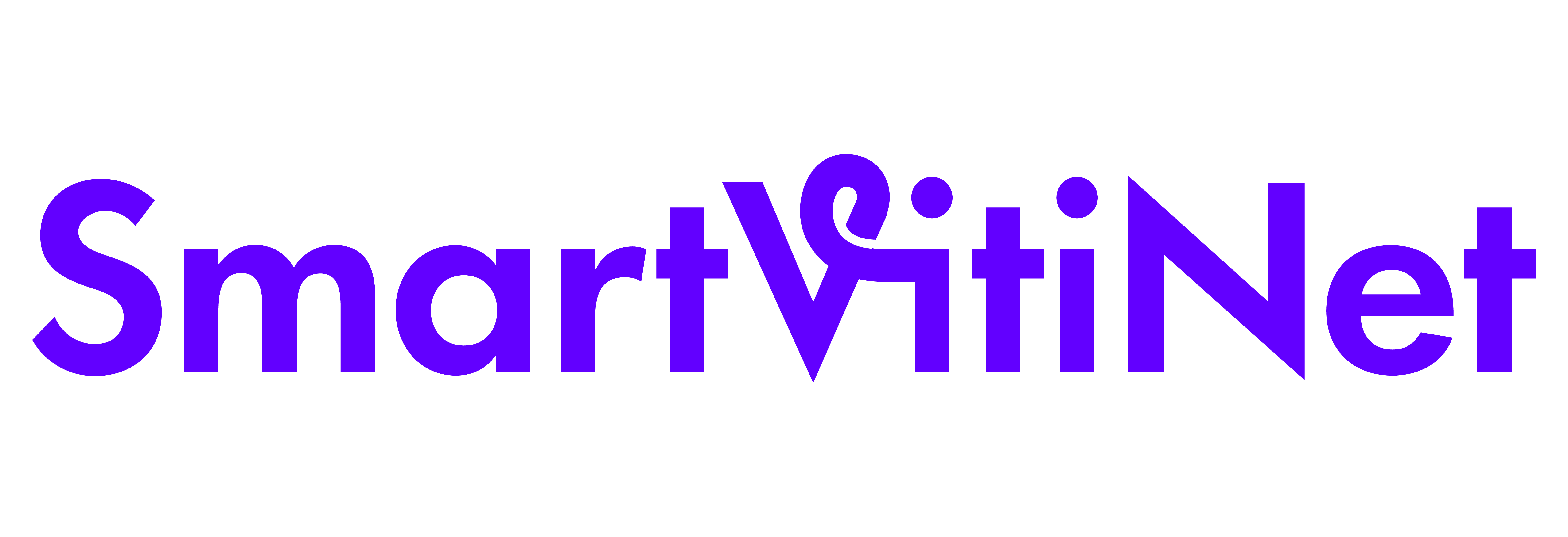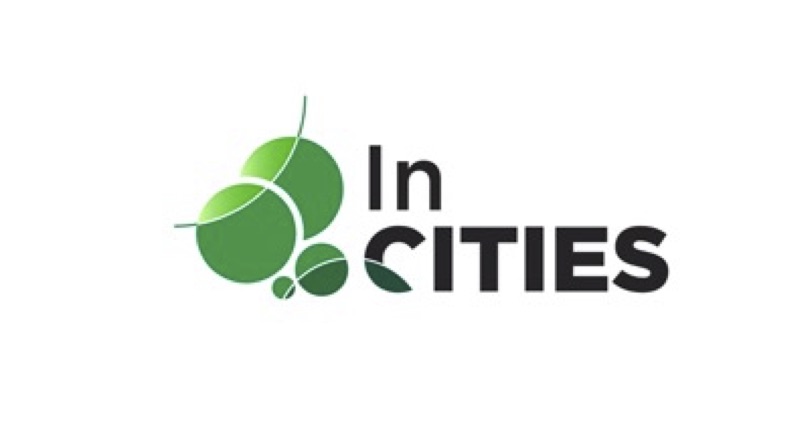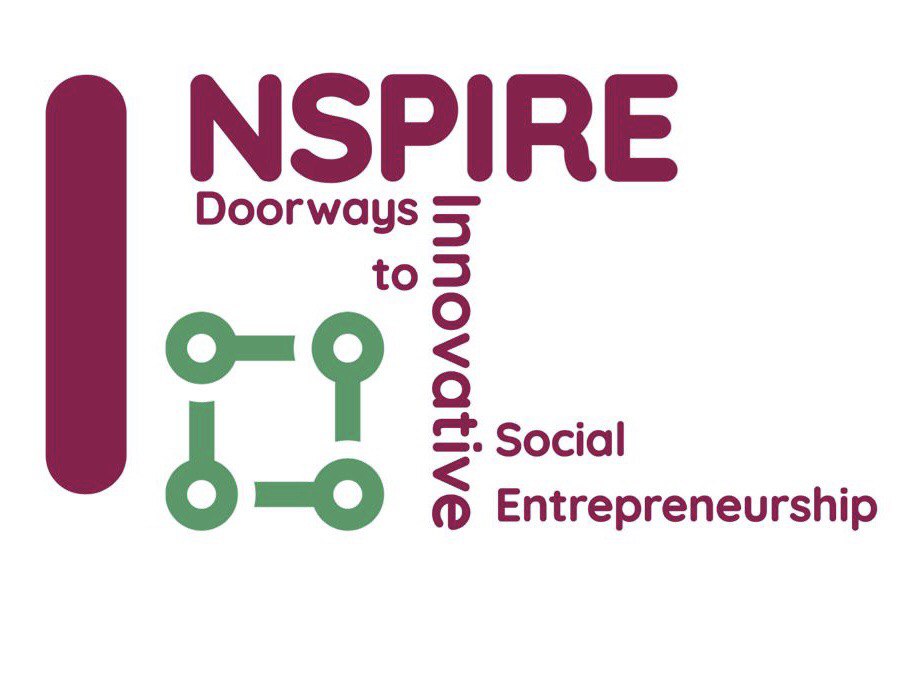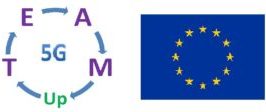Adaptive system for crowding monitoring using user's devices fingerprinting
Investigador
The main objective of this project is to provide a flexible system that can be independently deployed by public administration authorities to monitor public spaces, where special events are planned, or anticipated to occur, that are expected to lead to crowding aggregation.
Informação do Projeto
2024-12-19
2026-01-31
Parceiros do Projeto
- IT-Iscte
- ISTAR-Iscte (SSE)
- IT - Líder (Portugal)
Mestrado em Gestão da Transformação Digital no Sector da Saúde
Investigador
O Mestrado em Gestão da Transformação Digital no Setor da Saúde (ManagiDiTH) é um projeto com a duração de quatro anos, iniciado em janeiro de 2023 e financiado pela União Europeia, no âmbito do Programa Europa Digital. O projeto tem como objetivo o desenvolvimento e implementação de um novo plano curricular de Mestrado orientado para a capacitação de profissionais do setor da saúde, dotando-os das competências digitais, tecnológicas e de gestão necessárias para conceber, implementar e liderar serviços digitais inovadores em contextos de saúde.
O projeto resulta de um consórcio internacional e intersectorial composto por sete parceiros de três países europeus (Grécia, Finlândia, Portugal), integrando instituições de ensino superior, centros de investigação e organizações do setor empresarial e da saúde. O consórcio é liderado pelo ISCTE – Instituto Universitário de Lisboa e inclui a Laurea University of Applied Sciences (Finlândia), a Aristotle University of Thessaloniki (Grécia), o Instituto de Telecomunicações, a Whymob, Lda., a Clinipower Finland Ltd e a Mundiserviços – Companhia Portuguesa de Serviços e Gestão, Lda. Esta diversidade de parceiros assegura uma abordagem multidisciplinar que articula conhecimento académico, investigação aplicada e experiência prática no setor da saúde digital.
O Projeto ManagiDiTH visa contribuir para o reforço das competências avançadas em transformação digital no contexto europeu. Entre os seus principais objetivos destacam-se o desenvolvimento de referenciais de formação alinhados com o nível 7 do Quadro Europeu de Qualificações, a criação de um ecossistema de aprendizagem colaborativo e multidisciplinar e a implementação de um modelo pedagógico inovador, centrado na aprendizagem baseada em problemas e em projetos reais, apoiado por ferramentas e tecnologias digitais.
As competências pedagógicas, científicas e tecnológicas dos parceiros do consórcio são mobilizadas para a criação de um programa de Mestrado ...
Informação do Projeto
2023-01-01
2026-12-31
Parceiros do Projeto
- Iscte - Líder
- LAUREA - (Finlândia)
- AUTH - (Grécia)
- UNI EIFFEL - (França)
- IT-IUL - (Portugal)
- Clinipower - (Finlândia)
- Whymob - (Portugal)
- MundiConsulting - (Portugal)
Rede de Excelência de Viticultura Inteligente e Sustentável Assistida por Drones
Investigador
The aim of the SmartVitiNet project is to (a) scale-up, pilot and bring to the market an innovative holistic phytosanitary and plant protection system based on the use of unmanned aerial vehicles, new observational platforms and new ready to use sensors, and (b) establish a Competence Center for Precision Viticulture. The proposed research will utilize complementary knowledge, experiences and infrastructure of all partners to achieve the proposed innovative results. The sustainability of the undertaking will be ensured thanks to the establishment of the Competence Centre for Precision Viticulture which aims to upskill sector professionals, create expert networks, facilitate permanent flows of knowledge transfer between academia, innovative SMEs, viticulture professionals and regional authorities to increase sector competitiveness, while enacting EU environmental policies, reducing sector health impact and risks of food pollution.
Informação do Projeto
2022-12-01
2025-11-30
Parceiros do Projeto
- BRU-Iscte
- IT-Iscte
- AUA - Líder (Grécia)
- Future Needs - (Chipre)
- HDRON - (Grécia)
- Dronint - (Chipre)
- Casa do Joa - (Portugal)
- ALMADESIGN - (Portugal)
- Ramilo Wines - (Portugal)
- Agroecologia - (Grécia)
- AWC - (Portugal)
- WALTR - (França)
Trailblazing Inclusive, Sustainable and Resilient Cities
Investigador
O projecto InCITIES foca-se nas cidades do futuro: resilientes, sustentáveis e inclusivas. Este projecto é financiado pela Comissão Europeia, através do Programa Quadro Horizonte Europa, lançado, no contexto da European Excellence Initiative.
InCITIES promove e desenvolve iniciativas no âmbito da investigação, do ensino e no relacionamento com a sociedade envolvente.
InCITIES reflete os desafios globais europeus para as cidades do futuro abordando quatro objetivos:
Mapear estratégias de transformação institucional para universidades baseadas em investigação, progressivamente mais sustentável, incrementando a ciência aberta e oportunidades de carreira,
Fortalecer uma rede de longo prazo das instituições de ensino superior e de investigação participantes e os ecossistemas circundantes com base em hubs integrados de conhecimento,
Aumentar a capacidade científica, tecnológica e de pessoal, partilhando as melhores práticas pedagógicas, de pesquisa, de gestão e administrativas no consórcio,
Promover as competências digitais, criando uma plataforma de educação aberta e inovadora em sinergia com a agenda de investigação, desenvolvimento e inovação do projecto, com foco nas cidades inclusivas, sustentáveis e resilientes.
Os parceiros do consórcio representam universidades de cinco países (Portugal, Eslováquia, Finlândia, França e Alemanha), que asseguram as competências e os conhecimentos relevantes para a implementação do projecto.
Além do Iscte, o consórcio integra os seguintes parceiros universitários: Universidade de Zilina (Eslováquia), Universidade de Ciências Aplicadas de Colónia (Alemanha), Universidade Gustave Eiffel (França) e Universidade de Ciências Aplicadas Laurea (Finlândia).
Os parceiros associados do projecto são: Área Metropolitana de Lisboa, União das Vilas e Cidades da Eslováquia, Mobilidade Inteligente da Eslováquia, Confederação Portuguesa do Voluntariado, Confederação Portuguesa das Colectividades de Cultura, Recreio e Desport...
Informação do Projeto
2022-10-01
2025-09-30
Parceiros do Projeto
- Iscte - Líder
- TH KOLN - (Alemanha)
- LAUREA - (Finlândia)
- UNI EIFFEL - (França)
- UNIZA - (Eslováquia)
Relaunching European smart and SustainablE Tourism models Through digitalization and INnovative technoloGies
Investigador
A crise global do COVID-19 desencadeou grandes mudanças nas sociedades em todo o mundo, perturbando a forma como vivemos e conduzimos os negócios. Em toda a Europa, as medidas e restrições impostas devido à pandemia levaram a mudanças repentinas em muitos paradigmas, abrindo caminho para novos modelos de negócios e de operação no mercado. Essa rutura dramática acelerou algumas tendências socioeconómicas, que eram visíveis antes da crise do COVID-19, como a adoção de tecnologias sofisticadas e soluções de dados para facilitar modelos de operação centrados no ser humano, inteligentes e sustentáveis; a incorporação da sustentabilidade e da mitigação das alterações climáticas como princípios não negociáveisde operar e fazer negócios e, por último, mas não menos importante, confiar em soluções inteligentes baseadas em dados para orientar a tomada de decisão com otimização do desempenho comercial e da sustentabilidade.
A indústria do turismo é um dos setores económicos globais que sofreu o impacto mais severo da pandemia COVID-19, o que está associado à sua desaceleração económica. Dados da Organização Mundial do Turismo das Nações Unidas (UNWTO) confirmam que a crise atual é responsável por uma queda global nas receitas de exportação de 750-900 biliões de euros e uma perda de empregos diretos estimada entre 100 e 200 milhões. Com a queda dos lucros e a incerteza da retoma de uma estabilidade nos mercados, está em risco a recuperação para breve das pequenas e médias empresas (PMEs) que, segundo a UNWTO, são responsáveis por 80% do turismo global. Com a perda de receitas e, consequentemente, a fuga de talentos para outros setores económicos, as PMEs do turismo têm de levar a cabo a retoma com recursos limitados.
Através da conceção de uma solução tecnológica dinâmica (plataforma) para transferência de conhecimento e troca de experiências disponibilizada a uma rede de clusters de PME do turismo em seis países, este projeto irá demonstrar como a digitalização pode aceler...
Informação do Projeto
2022-01-02
2024-06-30
Parceiros do Projeto
- ISTAR-Iscte
- BRU-Iscte
- IT-Iscte
- EURECAT - Líder (Espanha)
- TICSUD - (Espanha)
- FEHT-Turism - (Espanha)
- - - (Itália)
- ANHER - (Grécia)
- Albanian Trip - (Albânia)
- AUDAX - (Portugal)
Strengthening Migrant Integration through cooperation between Portugal and Cabo Verde
Investigador
This action is organized around the general objective (G.O.) to strengthen the mechanisms for the integration of immigrants into Cabo Verde society, while reinforcing the contribution to the priorities defined in the cooperation framework between Portugal and Cabo Verde.
This objective is achieved by carrying out several activities oriented towards practical and accurate results, based on the exchange of experiences between both countries to improve the services provided, considering the following specific objectives/outcomes:
• S.O.1. – To improve instruments and operating procedures regarding immigrant integration in Cabo Verde, by implementing four local units for immigrant support, a multichannel platform to support and strengthen public services available to immigrants and developing instruments for local approaches.
• S.O.2. – To develop capacity-building actions for Cabo Verdean authorities (at national and local level), civil society organizations and ACM key staff, in legal migration management and integration.
• S.O.3. – To provide certified professional training of immigrants to promote their professional qualification.
• S.O.4. – To produce and disseminate knowledge about migration in Cabo Verde, by developing studies, awareness-raising campaigns, and setting up a Migration Observatory in the country.
Informação do Projeto
2021-12-01
2025-07-31
Parceiros do Projeto
- BRU-Iscte (M&M) - Líder
- CIES-Iscte
- IT-Iscte
Competências digitais e empreendedorismo entre domínios para desafios sociais, KA220-HED - Cooperation partnerships in higher education | ERASMUS+ 2021-2023
Investigador
O projeto visa converter a cooperação transnacional em material curricular sólido que aborda as habilidades digitais e competências empreendedoras de vários domínios de estudantes preparados para enfrentar os desafios da sociedade. Por esse motivo, o projeto baseia os seus resultados nas seguintes atividades:
(i) mapear as competências digitais e competências empresariais transversais, (ii) identificar novos ou adaptar os materiais curriculares existentes nas IES (iii) facilitar projetos internacionais de estudantes que permitam o domínio de habilidades e competências na aprendizagem pela ação (iv) indo localmente para alcançar a sociedade cívica e abordar algumas ações locais que permitam às universidades se tornarem mais empreendedoras (terceira missão das universidades) (v) elaborar um livro pedagógico e informativo que abrange as ações realizadas e resultados alcançados.
Inovação para Empreendedorismo Social
Investigador
) O projeto iNSPIRE Social Entrepreneurs Network (iNSPIRE) criará um HUB de aprendizagem inspirador, baseado na identificação de lições transferíveis do ambiente de aprendizagem formal e informal para apoiar o desenvolvimento de uma rede de empreendedorismo social em vários países europeus (Turquia , Portugal, Irlanda, França e Bélgica).
A Irlanda e a Bélgica já possuem uma importante experiência em empreendedorismo social e contribuirão para a criação de uma forte parceria para apoiar e desenvolver um cluster social europeu. Evidências da Irlanda e da Bélgica mostram que o empreendedorismo social demonstra um grande potencial para o crescimento do emprego. O objetivo do iNSPIRE é melhorar as competências dos empreendedores sociais e aumentar o potencial de criação de empresas sociais. O projeto envolverá diversas partes interessadas no diálogo e na cooperação, incluindo associações sem fins lucrativos, universidades, empresas de formação, organizações de inovação social, centros de investigação e organismos públicos. Capturará a experiência, incluindo mecanismos de aprendizagem, abordagens de gestão e competências em rede de outros projetos na área social, desenvolvidos principalmente pelos parceiros, por exemplo, capacitação.
Informação do Projeto
2021-11-01
2023-10-31
Parceiros do Projeto
ATLAS de Siza: colmatar lacunas no Património Mundial
Investigador
Na sequência do estudo “The world heritage list: filling the gaps – an action plan for the future” e da Estratégia Global do Comité do Património Mundial, incentivando a submissão de nomeações de Património do século XX, o ICOMOS-Portugal apresentou um conjunto de obras de Álvaro Siza para a Lista Indicativa do Património Mundial, em 2017.
Siza é um arquiteto de reconhecida relevância no panorama nacional e internacional, tendo cerca de 500 projetos e obras (espalhadas por 4 continentes e 16 países) mais de 100 prémios e distinções, 19 Doutoramentos honoris causa, centenas de publicações dedicadas. Apesar do reconhecimento internacional da qualidade da arquitetura de Siza, não existe ainda um inventário completo, consistente e sistemático da sua obra construída. A informação existente é geralmente dispersa, parcial ou incompleta. Por outro lado, a bibliografia centra-se mais em questões formais do projeto, sendo omitidas a dimensão material e tecnológica das suas obras, assim como o estado de conservação dos edifícios ou os seus potenciais riscos e ameaças.
Neste contexto, SizaATLAS propõe desenvolver um inventário abrangente de todas obras construídas de Siza, assim como fazer uma análise e documentação pormenorizada dos 18 edifícios selecionados para a Lista de Património Mundial. Esta investigação e a comparação com outras obras de arquitetura contemporânea, permitirão uma melhor compreensão do valor único da arquitectura de Siza, num contexto nacional e internacional. Tal será fundamental para informar a justificação do Valor Universal Excecional (VUE) da sua obra, bem como a respetiva proteção nacional e nomeação a Património Mundial.
Para o efeito, a presente investigação propõe desenvolver:
1) PLATAFORMA COLABORATIVA web de livre acesso, que permitirá a gestão e partilha de informação, assim como a compilação de formulários e disseminação de pesquisa;
2) INVENTÁRIO georreferenciado de toda a obra construída de Siza em Portugal e no estrangeiro;
3) DOCUM...
Informação do Projeto
2021-09-20
2024-09-19
Parceiros do Projeto
- ISTAR-Iscte (DLS) - Líder
- IT-Iscte
- DINAMIA'CET-Iscte
- FAUP - (Portugal)
- ESG - (Portugal)
Soluções inteligentes para uma agricultura sustentável, preditiva e autónoma
Coordenador Local
O projeto mobilizador nº 46078 - Smart Farm tem como objetivo facilitar a transição para agricultura digital das explorações agrícolas, independentemente da sua dimensão, por via de :
Conceber e desenvolver soluções acessíveis com base nas tecnologias, para a aplicação em horti, fruti e viticultura;
Dinamizar práticas de agricultura sustentável, preditiva, autónoma e geradoras de elevado valor acrescentado, na região oeste, e a nível nacional e internacional.
Soluções inteligentes para uma agricultura sustentável, preditiva e autónoma.
Informação do Projeto
2020-07-01
2023-06-30
Parceiros do Projeto
- IT-Iscte
- IT-Iscte
- TOMIX - Líder (Portugal)
- Adega Cooperativa São Mamede da Ventosa, CRL - (Portugal)
- Centro Operativo e Tecnológico Hortofrutícola Nacional - (Portugal)
- FCUL - (Portugal)
- Associação para a Valorização Agraria - (Portugal)
- Faculdade de Ciências e Tecnologia da Universidade Nova de Lisboa - (Portugal)
- FLOWAKE - (Portugal)
- IMPACTWAVE - (Portugal)
- INESC TEC - (Portugal)
- Instituto Nacional de Investigação Agrária e Veterinária, I.P. - (Portugal)
- IPL - (Portugal)
- Laboratório Colaborativo para a Inovação Digital na Agricultura - (Portugal)
- Luis Vicente - (Portugal)
- OPTIMIZEPLANET - (Portugal)
A Bridge Between Emotinal Learning and Technology
Investigador
Social and Emotional Learning (SEL) supported by technology is an innovative challenge in the area of education. Children who become skilled at SEL improve their relationships with others and academic success. The efficiency of the SEL process in emotional outcomes increase when it take place with young children in early childhood classrooms. SEL is also an effective way to reach young children and youth who are most vulnerable (e.g., problem behavior). Education technology is as a tool that can enlarge learning when used adequately by educators and teachers.
In this project, the partners acting at pre-school, school and higher education level, aim to link research, best practice and innovative learning strategies (play-based learning, peer learning, collaborative learning, and partner learning) with education technology and used technological resources (internet, multi-media), in order to:
i) Create a platform to support both children and teachers, and other users, to implement the social and emotional learning program, where all outputs produced by the project will be available, and a backoffice where data from all users will be recorded;
ii) Based on a Research report, adapt an “Emotional Competencies” methodology. Training will be provided to teachers and other professionals (e.g., psychologists, school mediators);
iii) Develop a cross-national training course for teachers to support the use of the platform and to implement the methodology. A manual for the applicators (e.g., teachers, psychologists) will be launched;
iv) Elaborate an evaluation protocol, with a qualitative research methodology – focus group – with children, complemented by a quantitative methodology – measurement instruments (e.g., self-report questionnaires);
v) Create a tool “Emotechie Serious Play” to develop and promote social and emotional learning in students from 5 to 14 years old. A manual for children will also be released. A randomized control trial to evaluate the tool will be ...
Informação do Projeto
2019-09-01
2022-08-31
Parceiros do Projeto
- CIS-Iscte (CED)
- IT-Iscte
- Budapest III. Kerületi Dr. Szent-Györgyi Albert Általános Iskola - (Hungria)
- DIMOTIKO SHOLEIO AGROKIPIOU - (Grécia)
- Agrupamento de Escolas Alto do Lumiar - Líder (Portugal)
- Associação Jardim Escola João de Deus - (Portugal)
- SOCIEDAD COOPERATIVA LA ALCAYNA - (Espanha)
New RAN TEchniques for 5G UltrA-dense Mobile networks
Coordenador Local
In TeamUp5G we believe that motivation from involvement and engagement is key to learning. We want to place creative young researchers in front of the real world, enabling them to work on real-life technical issues, working across multiple European countries and organizations, presenting at workshops in front of industrial users/stakeholders, and becoming involved in standardization activities. We also want to provide them with communications skills, the ability to work in groups and an understanding of integrity and ethics in research. The project focus is ultra-dense small cell systems as an important component in future heterogeneous 5G networks (commercial deployment in 2020) and beyond. TeamUp5G considers aspects such as enhanced multi-antenna techniques, efficient backhaul/fronthaul, massive MIMO, communications in the millimetre-wave bands and visible light communications, as well as spectrum sharing and aggregation to enhance system capacity, decrease delay and energy consumption, and improve overall service quality. The research team of 15 young researches supervised by committed experts from the industry and academia will advance the state of the art with the design of novel physical/link/medium access control algorithms and protocols to enhance capacity and user satisfaction, new dynamic spectrum management, opportunistic optimisation of radio resources and cognitive radio techniques, together with self-organization capabilities, with different levels of collaboration, and techniques and methodologies to save energy. Both mobile broadband and internet of things applications and traffic will be harmonised. The new developed techniques will be analysed by simulation and prototyping and some show-cases (immersive video, drones) will be developed to illustrate the novelty and applicability of our ideas. The consortium will train the young researchers on how to contribute and will actively participate in the activities of standardization bodies.
Informação do Projeto
2019-01-01
2022-12-01
Parceiros do Projeto
Otimização Conjunta de Transmissão Hertziana e Óptica Privilegiando o Utilizador e Seu Ambiente
Coordenador Local
Main Objective: The OCTHOPUS project intends to develop a software solution for telecommunications operators (fixed and mobile) that performs a set of activities to monitor, plan and optimize an operator's global transmission network (access, aggregation and transport network), maximizing End-to-End Quality of Service (QoS) / Quality of Experience (QoE) offered to end-users, while minimizing the OPEX and CAPEX. The general objectives of the project are: Monitoring: development of a platform for network visualization and auditing, including Key Performance Indicator (KPI) health-check for the entire transmission network. Also, the implementation and installation, from scratch, of a energy consumption monitoring system for transmission nodes. Planning: Resizing the engineering margins used in the design of the fixed and mobile links responsible for transmission (link budget). Transmission Node failures simulation, with redefinition of the interconnection plan and inherent impact on quality of service, capacity and reached coverage/availability. Joint analysis of transmission network and access / core networks related with the migration of network topology to innovative and emerging approaches, such as C-RAN, SDN / NFV and MEC.
Optimization: determination of the best transmission solution (wired/wireless) and its parameterization according to: used technology, frequency band, energy consumption, available capacity bandwidth, geographic location of the transmission nodes and potential locations to include in network growth, terrain morphology and short- to medium-term meteorological indicators. Use of artificial intelligence techniques and Self-Organizing Networks (SON) approaches.The research group includes experts in the telecom field (electrical and informatics engineering), with distinct professional backgrounds, academic and also industry oriented. The project proposal is in fact a group effort between Instituto de Telecomunicações and CELFINET, aiming to increa...
Informação do Projeto
2018-10-01
2020-09-30
Parceiros do Projeto
Carrier Aggregation between Licensed Exclusive and Licensed Shared Access Frequency Bands in Heterogeneous Networks with Small Cells
Coordenador Local
To provide a solution towards meeting new and ever more stringent end-user requirements, mobile stakeholders are preparing the 5G technology of mobile broadband networking. 5G will be characterized by ultra-high traffic volume density, ultra-high connection density or ultra-high mobility, moving from a cell centric to a user-centric technology.This research explores the Carrier Aggregation technique to obtain high spectral efficiency, through the massification of small cells (SCs), together with new network technologies like C-RAN. Scenarios with exclusive spectrum access and spectrum sharing will be explored. Spectrum sharing assumes that two or more mobile operators/carriers have dedicated spectrum for macro cellular layer while SCs will use exclusive shared spectrum (by paying a fee) or share the access to non-licensed spectrum in an opportunist manner. Both terrestrial cellular scenarios and HetNets with drones small cells will be investigated, and some tests will be done with programmable electronic envisaging demonstrating the concept in real environments. Entrepreneurship is also a target and training will be provided in the venues of the CONQUEST Workshops. Cost/revenue optimization is one of the final goals of the research.IT will contribute with analytical formulations, simulation, carrier aggregation, inclusion of spectrum sharing, hardware testing in the ORCIP platform (an FCT infrastructure recently approved, which will provide equipment and measurement instruments for testing, as well as support for real operation of the HetNet infrastructure, http://www.orcip.pt), design and implementation of the drones small cells and cost/revenue optimization, entrepreneurship and business strategies. IT will also provide the required interactions to PDMFC, the Portuguese SME that is interested in exploring the technology.
Informação do Projeto
2018-09-01
2019-12-31
Parceiros do Projeto
Technology and innovation management master
Investigador
This project intends to give a significant contribution in high education, proposing a specific master programme to form innovative managers, researchers and local developers, but at the same time providing a strict connection with industry and society, in a framework of blended learning approach. Precisely, the main aim is to allow SMEs and other kind of companies or institutions identifying good practices and new behaviours to face innovation challenges. The master degree students shall be capable to deal with innovation in traditional sector products, but also with the most advanced technologies, such as nanotechnology, biotech and ICT most innovative tools, with particular attention to the environmental problems in order to achieve sustainable solutions. Concerning sustainability, competences related to the circular economy will be trained, particularly promoting resource productivity with the aim of reducing wastes and avoid pollution. Industrial products and systems should be designed in order to close the loop, recycling and reusing post-consumer waste to make new products. This innovative approach must be fostered, especially among manufacturing enterprises, and the expected results of the master degree will be well prepared managers and researchers, fundamental in implementing sustainable innovation. Therefore, the programme will create competences for transforming knowledge into added value for society, providing entrepreneurship training to innovative participants, supporting with innovative financing (crowd-sourcing) such new opportunities, and interacting for solving environmental problems with new tools and rationale of the circular economy. In term of future impacts, this project will create capacities in managing technology and innovation in social and productive applications while constructing bridges for overcoming the “Valley of Death”, or the “European Paradox”, in a world of uncertainty, sustainability and complexity.
Informação do Projeto
2017-10-15
2021-10-14
Orquestração Automática Energeticamente Eficiente de Redes Móveis Optimizando a Qualidade de Experiência
Investigador
O projeto MESMOQoE assenta no desenvolvimento de uma solução de software (Web Based) direcionada a operadores móveis, capaz de monitorizar, otimizar e prever a utilização de um conjunto de recursos que compõem uma infraestrutura de telecomunicações móveis. Tem como objetivos: 1. Garantir ou melhorar os níveis de Qualidade de Experiência (Quality of Experience, QoE) e Qualidade de Serviço (Quality of Service, QoS) e assumidos pelo operador móvel, através de um processo de auto-optimização dinâmico em malha-fechada.2. Desenvolver modelos e métricas objetivas de avaliação de qualidade, que permitam otimizar a QoE do cliente em vários cenários com especial incidência em aplicações de distribuição multimédia.3. Otimizar a infraestrutura da rede móvel, contribuindo assim para a redução dos custos de operação e aquisição, bem como reduzir o consumo energético da rede.4. Garantir que as necessidades de negócio do operador se encontram alinhadas com o dimensionamento, operação e previsão (forecast) da infraestrutura de rede.
Informação do Projeto
2017-09-01
2019-08-31
Parceiros do Projeto
Remote Piloted Semi-Autonomous Aerial Surveillance System Using Terrestrial Wireless Networks
Investigador
The main objective of SAAS is to develop an UAV remote control system that is mostly independent of a specific vehicle model or design and that makes use of the available terrestrial wireless networks. The individual challenges and objectives to be addressed are:• Real-Time Video Transmission and Control using Terrestrial Wireless Networks: Investigate the possibility of transmitting real time video and control commands with adequate quality for a pilot to control and make decisions on the vehicle course using the available radio networks (GSM, UMTS, HSDPA, Wi-Fi, LTE).• Semi-autonomous Flight Control: Develop autonomous control capabilities for the aircraft to perform its self-rescue in the case of loss of radio connection and that can also allow a reduced piloting workload.• Remote Visualization and Control Application: Implement an application for tablet PCs that enables the visualization of the video captured by the aircraft cameras together with other telemetry information and allows the pilot to command the aircraft (either using the touchscreen, the accelerometers or an additional attached joystick).• Prototype Implementation and Flight Tests: Implement a prototype using a small rotary-wing aircraft (possibly a tricopter/quadcopter) and evaluate the performance in terms of video reception, control, and autonomy capability.
Informação do Projeto
2012-03-01
2014-04-01
Parceiros do Projeto
LTE-Advanced Enhancements using Femtocells
Investigador
The project will take LTE-Advanced as a reference and will explore possible enhancements to the support of femtocells. It will use mechanisms to reduce the interference-limited transmission with full frequency reuse. These include CQI, QoS- and interference- aware scheduling and RRM with user-grouping, coordinated RRM, exploiting the spatial degrees of freedoms from multi-antenna systems and OFDMA through MIMO and beam forming techniques, active interference management and CoMP transmission, as well as carrier aggregation for multi-band transmission.New technologies like aggregate carriers and cooperative multi antennas antenna systems as part of LTE-Advanced systems will be evaluated with respect to their ability to enhance the performance of networked femtocells based on LTE-A. The availability of Positioning information, can help provide the network with information on the terminal positions and, with this, to adapt the transmission scheme to the terminal avoiding worst channel conditions.At the network layer, considerable research and development has been recently focused on the use of small cellular base stations. However, those cells have only been considered as mere extensions to cellular networks, allowing the enlargement of service coverage. The use of these small cells, mostly deployed by consumers, has not yet been fully explored. There are many services and protocols in the network that could benefit on the scattering of this kind of cell deployment. This project will exploit the opportunities that small cells will bring to improvement on the network architecture. The aim is to a achieve a much richer small cell, that will provide better support for several services and protocols that could take advantage on a distributed architecture and/or context ware and localized information.Femtocells can have many benefits for both operators and users. From an operational or deployment perspective however their integration into the network is quite hard. From the ...
Informação do Projeto
2012-03-01
2014-12-31
Parceiros do Projeto
Satellite Ground Station for Study and Development of Radio Communications
Investigador
This project aims at building a satellite ground station at the Ku band that can be remotely controlled and accessed through a dedicated server to all authorized users using a simple web browser connected to the internet anywhere in the world. Authorized users can request and collect data (telemetry, images, etc) from its database for post-processing. This equipment can be used for a great variety of experiments not previously possible at this location and can be an important factor to increase the cooperation amongst national and international researchers and institutions, namely with ESA. Its location and features are unique and can be of strategic importance for the development of national research and industry in this field.
Informação do Projeto
2006-01-01
2006-12-31
Parceiros do Projeto
Mobile IP for Broadband Wireless Metropolitan Area Networks
Coordenador Local
Main Objective: This applied research project intends to design or plan fixed/portable and mobile Wimax (Worldwide Interoperability for Microwave Access) WMANs (Wireless Metropolitan Area Networks), pioneering implemented in Portugal. Besides the benefits of its operation in the context of university, hospital and urban environments it will be very useful for demonstration and research purposes.The project involves five main tasks:1-Design and Development of IEEE 802.16 Microwave Links for Fixed/Portable Communications. 2- Planning of a Cellular IEEE802.16e for Mobility Support. 3- Network Architectures for Interoperability and Mobile IP between Wifi and WiMax networks. 4- Security for IEEE 802.16. 5-Multimedia Service and Applications for Mobile Platforms. Our methodologies will be based on detailed planning, as well as network implementation, demonstration and validation. Measurements will be performed to evaluate QoS, and help both the dimensioning and the optimisation processes. THE FINAL WORKSHOP WILL BE HELD ON THE 27th SEPTEMBER IN IT/ISCTE, LISBON, PORTUGAL
Informação do Projeto
2005-06-01
2007-10-01
Parceiros do Projeto
Broadcasting and Multicasting Over Enhanced UMTS Mobile Broadband Networks
Investigador
B-BONE main objective is to further enhance UMTS capacity, transmission rates, RAN and Core network functionalities, considering both FDD and TDD modes, so as to accommodate digital broadcasting/multicasting (multimedia) type services.

 English
English

